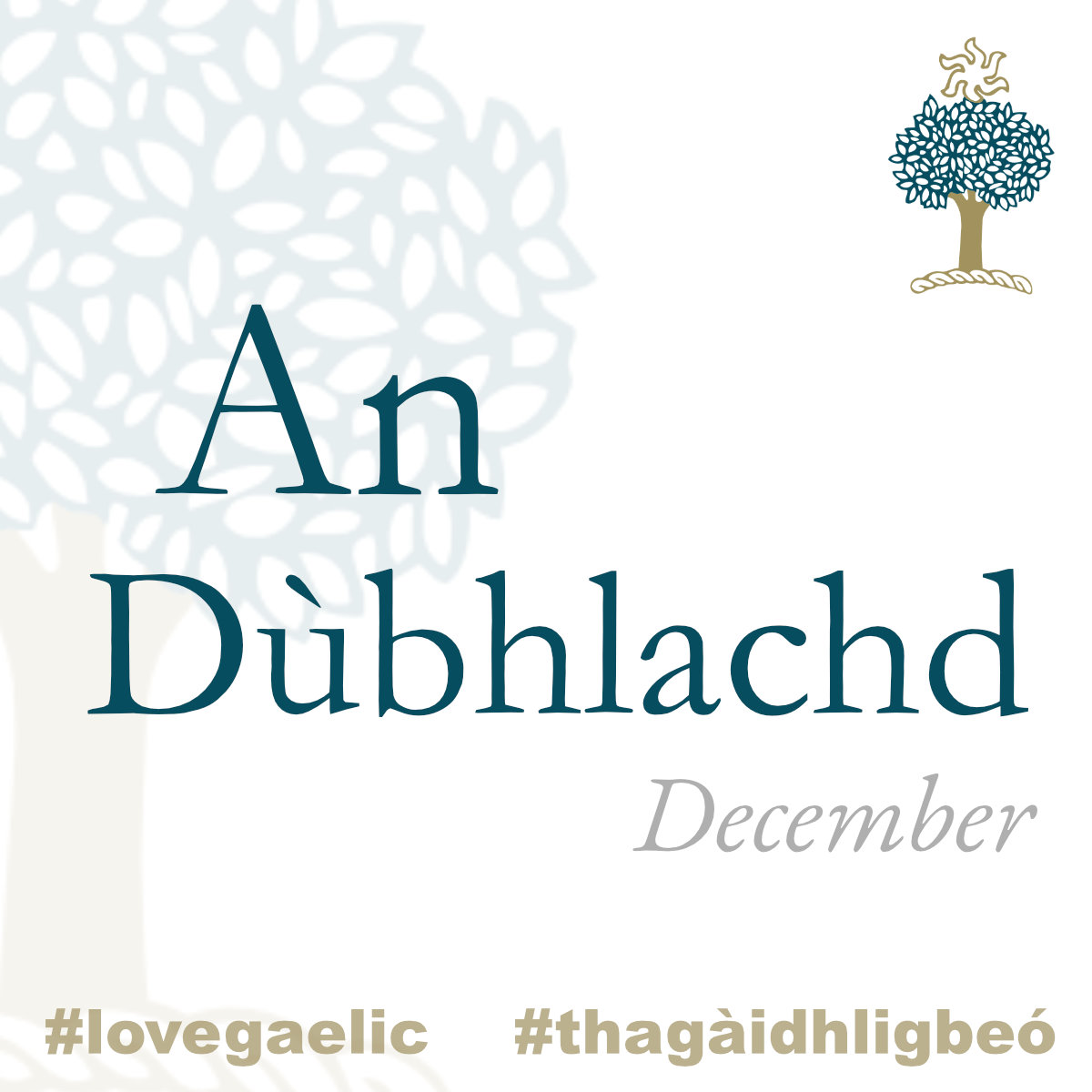‘An Dùbhlachd’ (pronounced ‘an doolachk’ with the ‘ch’ as in ‘loch’) means the ‘darkness’ or ‘blackness’ and of course refers to the short days and long nights that we have this month, leading to the winter solstice this year on Saturday 21st of December. These dark days of winter are known as ‘an dubh-gheamhradh’ in Gaelic. But to lift the spirits of the people in the Highlands, the main celebration was often Hogmanay or New’s Year’s eve rather than Christmas. Of course this is a time when many a spirit is lifted, particularly our own Gaelic whiskies!
New Year’s day in Gaelic culture is known as ‘a’ Challainn’ (pronounced ‘chaleen’ with the ‘ch’ as in loch again.) and New year’s eve is known as ‘Oidhche Challainn” (oidhche means night and is pronounced ‘ayechuh’ with ch again as in loch). This was another time of celebrations, rituals and customs. ‘First footing’ as it is now known was a time to visit family and friends in the early hours of New Year’s Day and to wish them a healthy and happy year ahead. Children would dress up, certain rhymes were said and drams were taken – only by the adults of course!
Some say that this word Callainn is linked to the word calends or kalends, which comes from the latin word ‘calendae’ meaning the first day of each month in the ancient Roman year. From this Latin word we of course get the word ‘calendar’ in English!
But in many parts of the Highlands and Islands, Oidhche Challainn or New Year’s Eve, was originally held on the 12th of January and this is still known in Skye as the old New Year. Here at Hotel Eilean Iarmain, this was often marked with a cèilidh and celebration amongst staff, locals and guests. This is because the 13th of January was the New Year’s day of the Julian calendar but when this was replaced by the Gregorian calendar in 1752, New Year became the date as we have it now but the old New Year is still celebrated in many parts of Scotland to this day!


